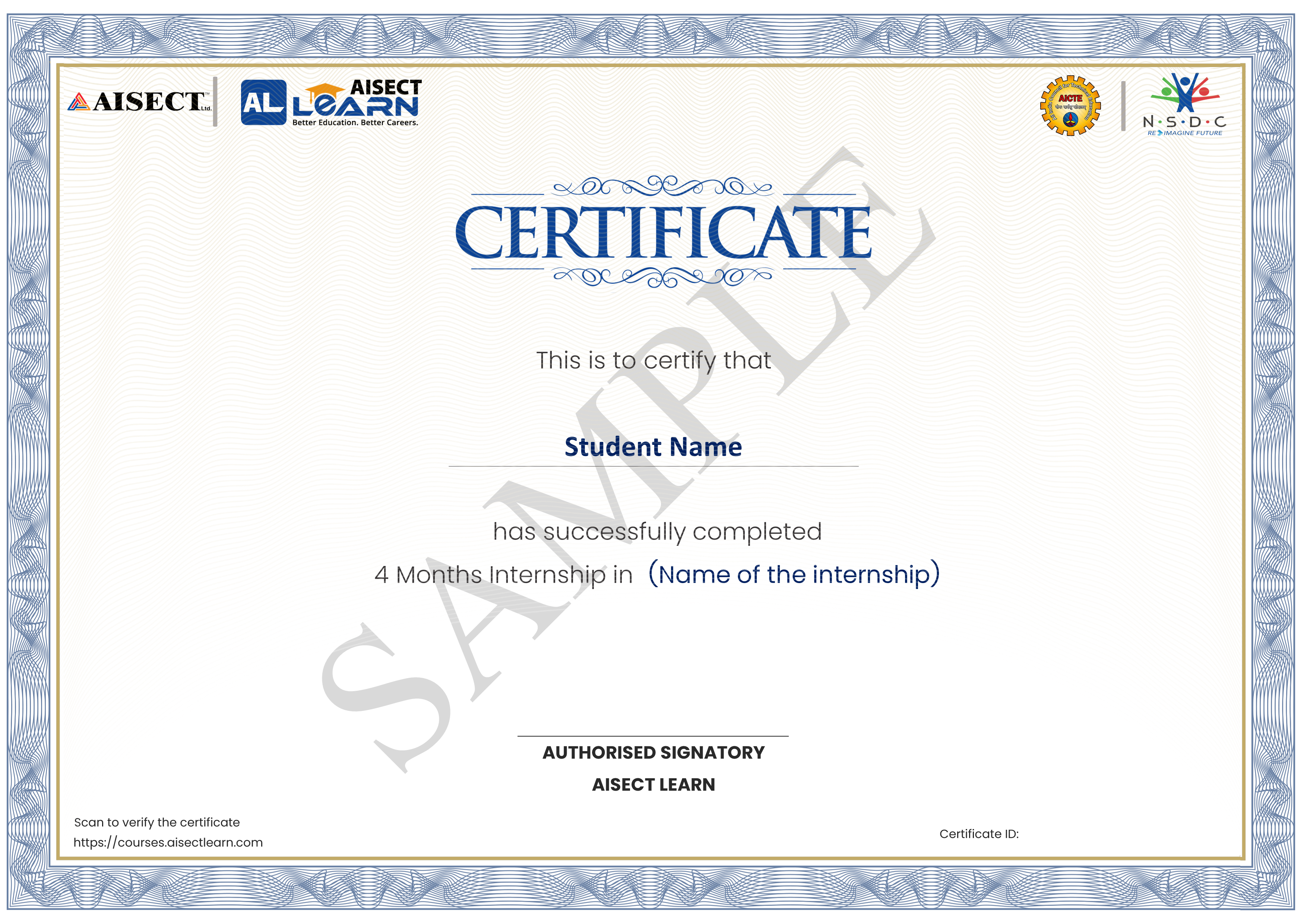Cyber Security PG Internship (Self Paced+ Live)
Blended
Fee: ₹1,499
 Dr. Priti Maheshwary | Dean at Future Skills Academy Scope Global Skills University
Dr. Priti Maheshwary | Dean at Future Skills Academy Scope Global Skills University
The Cybersecurity PG Internship Program is a thoughtfully designed, four-month comprehensive training initiative. It combines advanced cybersecurity expertise with entrepreneurial skill development, preparing participants to excel in technical roles while fostering the innovative mindset needed for leadership in the digital age. Delivered through a blend of self-paced modules and live interactive sessions, the program ensures both flexibility and engagement.
Objectives
The program aims to empower learners with cutting-edge cybersecurity knowledge and entrepreneurial skills, preparing them to excel in a rapidly evolving digital landscape. It focuses on bridging technical expertise with innovative leadership.
Provide in-depth understanding of cybersecurity principles and practices.
Provide in-depth understanding of cybersecurity principles and practices.
Cultivate entrepreneurial abilities to innovate and lead in technology-driven industries.
Enhance proficiency in cybersecurity risk assessment and management.
Prepare learners for diverse career opportunities in cybersecurity and business leadership.
What Will You Learn
Core cybersecurity concepts and tools to safeguard digital systems. Techniques for identifying and mitigating cyber threats. Fundamentals of entrepreneurship to kickstart your own business. Practical strategies for managing and growing a startup.
Skills you will gain
Curriculum
-
Cyber Security
-
1.1 Introduction to Cyber Security
-
1.2 Why Cyber Security is Important?
-
1.3 Role of cyber security engineer
-
1.4 CIA Triad
-
1.5 The Hacking Methodology
-
1.6 The WhoIS Query
-
1.7 Social Engineering
-
1.8 Brute Force Attacks
-
1.9 Phishing
-
1.10 Bots and Botnets
-
1.11 DoS and DDoS
-
1.12 Ping Command
-
1.13 Man in the Middle Attacks (MITM)
-
1.14 Malicious Codes and Terminologies
-
1.15 Cybersecurity Breaches
-
1.16 Penetration Testing and Methodologies
-
1.17 Frameworks and Standards for Cybersecurity
-
1.18 Introduction to Networks and Reference Models
-
1.19 Hardware and Software Elements of Computer Systems
-
1.20 OSI layers
-
1.21 Network Devices
-
1.22 Packet Sniffing
-
1.23 Sniffing Using Scapy
-
1.24 Packet Spoofing
-
1.25 Packet Spoofing Using Scapy
-
1.26 Types of Hackers & Hacktivism Page
-
1.27 Vulnerability & Pen testing
-
1.28 Cyber Security Controls
-
1.29 Understanding Terminologies Page
-
1.30 Cyber Security Policies
-
1.31 CVE & CVSS. .Page
-
1.32 Attacks & Threats Page
-
1.33 Architecture & Design
-
1.34 Operations & Incident Response
-
1.35 Operations & Incident Response
-
1.36 Firewalls
-
1.37 Encryption
-
1.38 Biometrics
-
1.39 Anti Virus
-
1.40 Password Management
-
1.41 What is Cyber Kill Chain?
-
1.42 Reconnaissance and Weaponization
-
1.43 Delivery and Exploitation
-
1.44 Installation, Command and control (C2) & Actions on Objectives
-
1.45 Windows NT Architecture
-
1.46 File Permission in Windows
-
1.47 Managing Memory
-
1.48 Password Hashing & SAM
-
1.49 Windows Processes
-
1.50 Windows Registry
-
1.51 Introduction to PowerShell
-
1.52 Installing Windows Operating System in Virtual Box
-
-
Entrepreneurship Skills
-
2.1 Introduction to the concept of enterprise
-
2.2 Examples of Real world enterprises
-
2.3 Types of enterprises - Overview
-
2.4 Discussion on young entrepreneurs
-
2.5 Characteristics of entrepreneurs
-
2.6 Advantages and Disadvantages of entrepreneurship
-
2.7 Jobs Vs Entrepreneurship
-
2.8 Types of Entrepreneurships
-
3.1 Exploring ideas: Starting with your own idea
-
3.2 Using pre-existing ideas
-
3.3 Sources of ready ideas and schemes
-
3.4 Market survey -How to gather information
-
3.5 Secondary study and reports
-
3.6 Primary study
-
3.7 Identifying and analyzing competitors and their products
-
3.8 Identifying your target markets: Identifying who will buy, geography
-
3.9 Customer types - tools and templates to shortlist market segment
-
4.1 Identifying and Mitigating Risks
-
4.2 Legal and Regulatory Challenges
-
4.3 Dealing with Failure and Setbacks
-
5.1 Ideate and Plan Your Business
-
5.2 Secondary Market Research
-
5.3 Developing Market Strategy
-
5.4 Financial Forecast
-
5.5 Elevator Pitch
-
-
Course SLM
-
2 Live Sessions
-
Final Project
Instructor

Dr. Priti Maheshwary
Dean at Future Skills Academy Scope Global Skills UniversityDean at Future Skills Academy Scope Global Skills University. Involved in Computer Science and Engineering for over 20 years in higher education and training. Her career has included various software development projects, teaching, research and administrative roles. She enjoys teaching and looking into how to improve student learning experience. Published around 50 research papers in refereed journals and conferences, 7 book chapters, 6 Patents. 8 PhD thesis completed under her guidance in the field of Internet of Things, Smart Cities, Ubiquitous Computing, Wireless Sensor Network, VANET, Image Processing specialized in Satellite Images, AI/ML & Deep Learning, and Cyber Security. Also done more than 10 projects in the field of Research and Consultancy.

Mr. Aman Kumar Gupta
Cyber Security Trainer & Bug HunterHe is also a former intern at Gurugram Cyber Cell as a cyber intern and an intern at IIT Kanpur as a Linux and Python developer.
Shareable Certificate

Other Details
Cyber Security, Entrepreneurship and Communication Skills Internship
 Start Date
Start Date  Credentials
Credentials Associated Courses
 Instructor:
Instructor:
 Duration:
Duration:
 Course Credit:
Course Credit:
 Certification Body:
Certification Body:
 Language:
Language:
 Access:
Access:
 Shareable Certificate:
Shareable Certificate:

